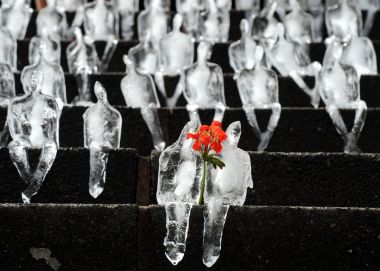How churches responded to the outbreak of war

There is a common perception that the Churches in the First World War acted as recruiting-sergeants for the War Office. Sadly, in the case of some clergy this was quite true. However, at the beginning of the war the prevailing mood was horror at what might come – and this was before the worst of the fighting had begun. It was the idea of war between great nations which was so dreadful. Only three days before the war began, the Archbishop of Canterbury, Randal Davidson, wrote to German theologian Ernst Drysander: "War between the two great Christian nations of kindred race and sympathies is, or ought to be, unthinkable in the twentieth century of the Gospel of the Prince of Peace."
Nevertheless, the leaders of the main denominations believed wholeheartedly in the rightness of the cause. Britain – England, as it usually was in those pre-devolution days – declared war on Germany after it invaded "plucky little Belgium". It was the strong coming to the aid of the weak. Atrocities like the burning of Louvain and the sinking of the Lusitania soon convinced even the waverers that this was a war for Christian civilisation against barbarism.
The Congregational minister and theologian Alfred E Garvie, principal of New College, London, wrote: "On August 2, I believed that Great Britain could and should keep out of the European conflict, but the violation of Belgian neutrality made me waver, and the speeches in the House of Commons of Mr Asquith and Sir Edward Grey convinced me that duty and honour called to participation."
Among Methodists, there were differences between the Primitives and the Wesleyans, with the Wesleyans far more gung-ho. The President of the Wesleyan Conference, Dinsdale Young, declared that "love of country is part of love of God". It was a particular issue for the Primitives when conscription was introduced in 1916; while most did support the war, they were outraged at the treatment of conscientious objectors.
Baptist leaders including John Clifford and J H Shakespeare issued a statement saying: "We are taught to pray for our enemies, and we must intercede for all these passion-blinded peoples, that they may regain a spirit of national sanity and self-control ..."
Clifford preached a sermon the following week in which he stressed his hatred for war, but said: "Yet when I looked into the situaton and weighed the whole of the evidence, I could not see that the Government had taken a wrong step ... the only thing I can say is that we were forced into it."
There were those who spoke out against the war, or aspects of it, with great courage. Archbishop Davidson protested publicly against the use of poison gas by British troops, for instance. Others, however, were unpleasantly enthusiastic. A thesis by Kevin Fielden on 'The Church of England in the First World War' quotes the Bishop of London, Arthur Winnington-Ingram, who claimed to have recruited around 10,000 men through his sermons as calling on young Englishmen to "band in a great crusade – we cannot deny it – to kill Germans. To kill them, not for the sake of killing, but to save the world; to kill the good as well as the bad; to kill the young men as well as the old, to kill those who have showed kindness to our wounded as well as those fiends who crucified the Canadian sergeant, who superintended the Armenian massacres, who sank the Lusitania... and to kill them lest the civilisation of the world should itself be killed." He did not, in fact, say this, though he was a great supporter of the war who does not show the Church in a very positive light.
Neither, according to Robert Graves in his memoir Goodbye To All That, did army chaplains: "Anglican chaplains were remarkably out of touch with their troops," he wrote. "The Second Battalion chaplain, just before the Loos fighting, had preached a violent sermon on the Battle against Sin, at which one old soldier behind me had grumbled ..." his precise words are not repeatable on a family website. However, Graves is not an entirely reliable witness, and many chaplains of all denominations were effective and respected; Woodbine Willie, for instance (G A Studdert-Kennedy), or Tubby Clayton.
Churches were very worried – and with good reason – about the morals of large numbers of men thrown together without the steadying hands of chapels and families. They warned against the demon drink and – in coded terms – the dangers of venereal disease.
There was also a huge effort to provide comforts, both from home and at the front. No soldier on the Western Front needed to go short of socks, given the number of ladies' fellowships knitting them. At the front, volunteers from the Salvation Army, the YMCA and others ran canteens and clubs where soldiers could get hot food, writing supplies and a listening ear. When America entered the war in 1917, Salvation Army officers made them doughnuts fried in helmets; the "doughboys" liked them so much they took the recipe home.
At the beginning of the Great War, church leaders struggled to know how to respond. Most of them hated war. Most of them thought the cause was just. They thought it was right for men to fight, but many of them were troubled by the plight of conscientious objectors. They responded pastorally to the sometimes overwhelming scale of the casualties, and shared in the national grief. It is hard to see what else they could have done.
Rev Mark Woods is a freelance writer and Baptist minister.











